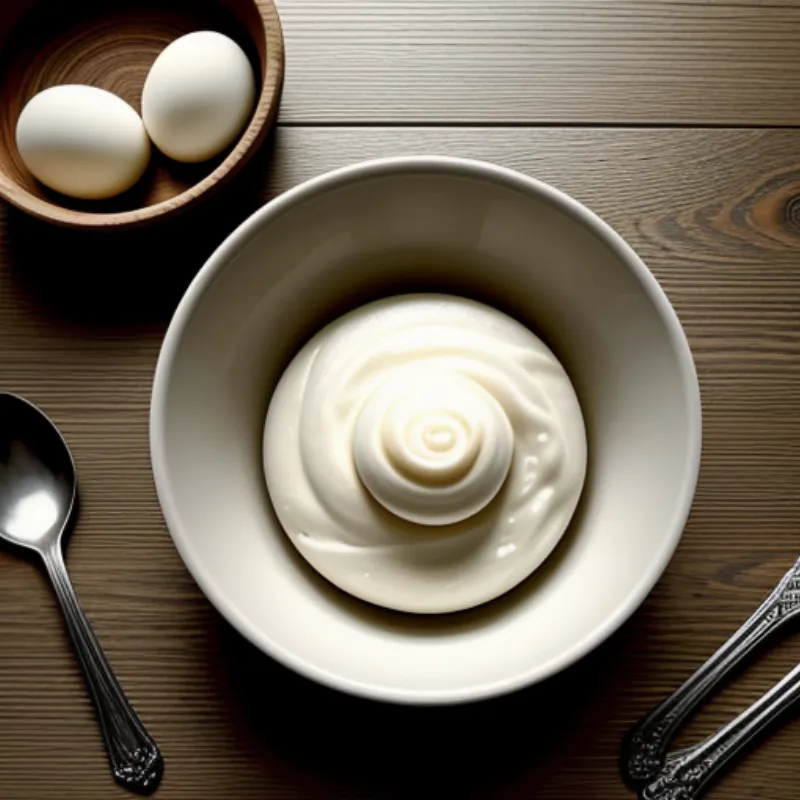Meringue cookies – those delicate, cloud-like confections that melt in your mouth – might seem intimidating to bake. But don’t let their elegant appearance fool you! With this step-by-step guide, you’ll discover that making meringue cookies at home is easier than you think. We’ll cover everything from understanding the ingredients to achieving those perfect, glossy peaks. Get ready to impress your family and friends with your newfound baking prowess!
What Makes Meringue Cookies so Special?
Meringue cookies, with their crisp outer shell and slightly chewy center, are a delightful treat that has been enjoyed for centuries. Their origin can be traced back to 17th-century Switzerland, although some food historians believe that similar egg white-based confections existed even earlier.
Their unique texture and sweet, airy flavor come from a simple yet magical combination of whipped egg whites and sugar. Whether enjoyed plain or adorned with colorful sprinkles, meringue cookies are guaranteed to satisfy your sweet tooth and leave you wanting more.
Ingredients for Perfect Meringue Cookies:
- Egg whites: 3 large egg whites, at room temperature (Room temperature egg whites whip up to a larger volume than cold ones.)
- Sugar: ¾ cup granulated sugar (Use superfine sugar if you have it, as it dissolves more easily.)
- Cream of tartar: ½ teaspoon (This helps to stabilize the egg whites.)
- Salt: ¼ teaspoon (Enhances the flavor.)
- Vanilla extract: 1 teaspoon (For a classic flavor. Feel free to experiment with other extracts like almond or lemon.)
Equipment You’ll Need:
- Mixer: A stand mixer with a whisk attachment is ideal, but you can also use a hand mixer.
- Baking sheets: Line them with parchment paper for easy removal.
- Piping bag: Fitted with your desired tip for shaping the cookies (A large star tip is a classic choice). You can also use a spoon to create rustic mounds.
- Spatula: For gently folding ingredients.
 Ingredients for Making Meringue Cookies
Ingredients for Making Meringue Cookies
Step-by-Step Guide to Making Meringue Cookies:
1. Preheat and Prepare:
- Preheat your oven to 200°F (93°C). Low and slow is the key to meringue success!
- Line two baking sheets with parchment paper. This will prevent sticking and ensure easy removal.
2. Whip the Egg Whites:
- In a clean and dry mixing bowl (using a stand mixer or hand mixer), beat the egg whites, cream of tartar, and salt on medium speed until soft peaks form. This means the peaks will gently droop when you lift the whisk.
3. Gradually Add Sugar:
- Gradually add the granulated sugar, one tablespoon at a time, to the egg whites while continuing to beat on medium speed. Make sure each tablespoon is incorporated before adding the next.
4. Achieve Stiff, Glossy Peaks:
- Once all the sugar is added, increase the mixer speed to high and beat until the meringue forms stiff, glossy peaks. The meringue should be thick and hold its shape when you lift the whisk. You should be able to turn the bowl upside down without the meringue falling out!
5. Flavor and Color:
- Beat in the vanilla extract (or your chosen extract) until just combined.
- At this point, you can separate the meringue into different bowls and add a few drops of food coloring if desired.
 Piping Meringue Cookies Onto Baking Sheet
Piping Meringue Cookies Onto Baking Sheet
6. Pipe or Spoon Your Cookies:
- Fit your piping bag with the desired tip and fill it with the meringue. Pipe the meringue onto the prepared baking sheets into swirls, kisses, or any shape you like. Leave some space between each cookie, as they will slightly spread during baking.
Alternative: If you don’t have a piping bag, you can simply spoon mounds of the meringue onto the baking sheets.
7. Baking Time:
- Bake the meringue cookies for 1 hour and 30 minutes to 2 hours, or until they are dry and crisp to the touch. The baking time will depend on the size and thickness of your cookies.
8. Cooling and Storing:
- Once baked, turn off the oven and let the cookies cool completely inside the oven with the door slightly ajar. This will help to prevent cracking.
- Once cooled, store your meringue cookies in an airtight container at room temperature to maintain their crispness. They will keep for several days, but are best enjoyed fresh!
Tips and Tricks for Meringue Cookie Success:
- Room Temperature Egg Whites: As mentioned earlier, room temperature egg whites whip up to a larger volume, creating lighter and airier cookies.
- Clean Bowl and Whisk: Make sure your mixing bowl and whisk attachment are completely clean and dry before whipping the egg whites. Any traces of grease or fat can prevent the whites from whipping properly.
- Don’t Overbeat: While it’s important to beat the egg whites until stiff peaks form, be careful not to overbeat them. Overbeating can cause the meringue to become grainy and dry.
- Low and Slow Baking: Baking meringue cookies at a low temperature ensures that they dry out evenly and develop a crisp texture without browning.
- Experiment with Flavors: While vanilla is a classic choice, don’t be afraid to experiment with other flavor extracts, such as almond, lemon, or peppermint. You can also add a pinch of spices like cinnamon or cardamom for a warm, comforting flavor.
- Get Creative with Decorations: Once the cookies are cool, you can dip them in melted chocolate, drizzle them with icing, or sprinkle them with chopped nuts or sprinkles for added visual appeal and flavor.
FAQs About Making Meringue Cookies:
Q: My meringue cookies are sticky even after baking for a long time. What could be the reason?
A: This usually indicates that the cookies weren’t baked long enough or at a low enough temperature. Make sure your oven temperature is accurate and try baking them for a longer time, checking for dryness every 30 minutes.
Q: Can I make meringue cookies without cream of tartar?
A: While cream of tartar helps to stabilize the egg whites, you can omit it if you don’t have any on hand. The meringue might not be as stable, but the cookies will still be edible. You can also try substituting an equal amount of lemon juice or white vinegar.
Q: My meringue cookies turned out chewy instead of crispy. What went wrong?
A: Chewy meringue cookies are often a result of moisture. Make sure your egg whites are at room temperature and that your mixing bowl and whisk are completely dry. Additionally, ensure that the cookies are cooled completely in a dry environment.
Take Your Baking to New Heights with Exquisite Meringue Cookies:
Making meringue cookies is an art that, with a little practice, anyone can master. These delicate treats are not just visually stunning but also incredibly delicious and versatile. They can be enjoyed as a simple afternoon snack, dressed up for special occasions, or used as a decorative element for cakes and pies.
So, gather your ingredients, put on your apron, and get ready to create your own batch of heavenly meringue cookies. You might be surprised at how simple and rewarding the process can be! For more meringue-based delights, check out our recipe for French Meringue, a versatile base for many desserts!
Don’t forget to share your meringue adventures with us! Leave a comment below with your baking experiences, questions, or any creative variations you come up with. Happy baking!
